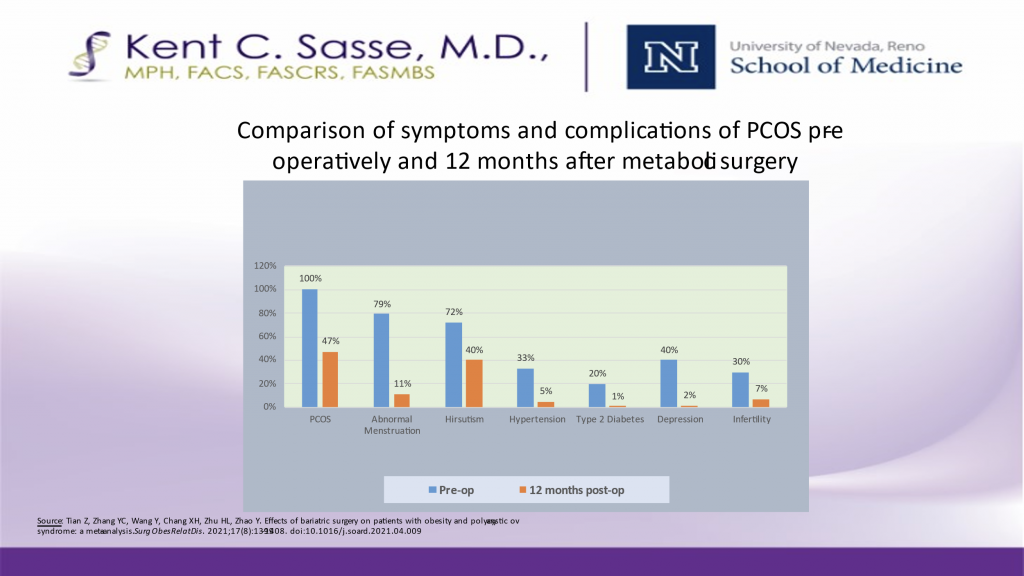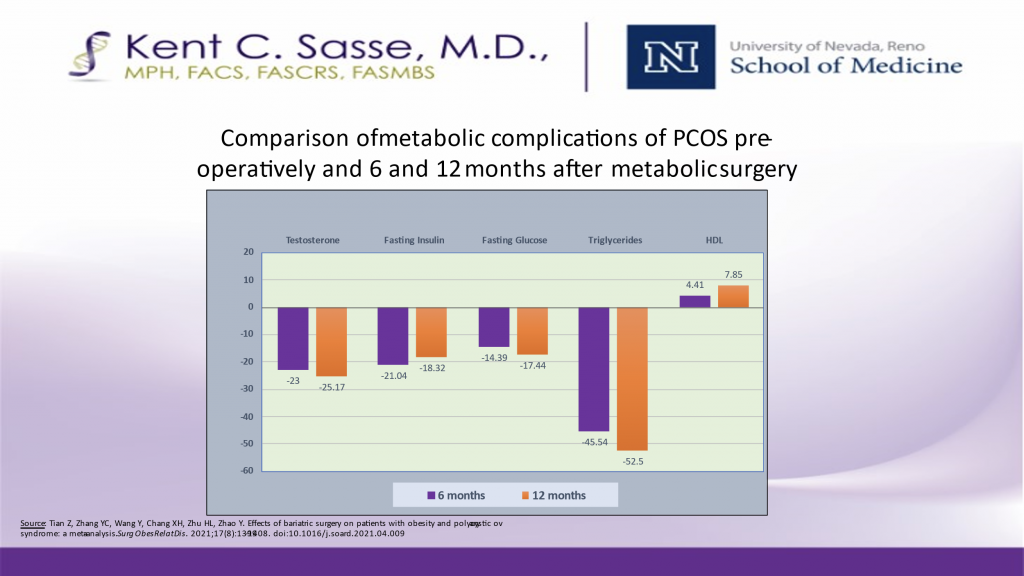Polycystic ovarian syndrome (PCOS) is a poorly understood hormonal condition that causes a range of troubling problems: painful cysts, irregular menstruation, infertility, acne, hair loss, and abnormal hair growth referred to as hirsutism. An excess of androgenic hormones, normally present in small amounts in females, is believed to play a significant role. PCOS is associated with insulin resistance and weight gain. For many women in early adulthood, PCOS has led them to series of doctors and trials of medications that have little effect. Now, research is finding metabolic surgery can be a successful tool for PCOS.
The Data
While there is no complete cure for PCOS, there is increasing data from published studies that features of PCOS are reversed or improved with metabolic surgery. Several studies of infertility and PCOS have demonstrated 60 to 70% of women have successful pregnancies after metabolic surgery. In Tian’s 2021 meta-analysis of the subject, over 80% of women resolved abnormal menstruation, and over 70% of women resolved infertility. The following graph illustrates additional improvements in additional conditions including hypertension, diabetes, hirsutism, and depression:

Blood testing further demonstrates that measurable improvements occur in women with PCOS after metabolic surgery. Improved levels of insulin, glucose, and testosterone complement an exceptionally large reduction in triglycerides – the part of fat storage most associated with heart disease and stroke.

While PCOS remains a complex condition without a single clear cure, it is very encouraging that metabolic surgery offers a high chance of improvement or reversal of many of its worst features. Metabolic surgery today consists of an extremely safe, 45-minute procedure done with minimally invasive approach and requiring 4-5 small Band-aids. Its effects are long-lasting and profound for most individuals.
To learn more about metabolic surgery and whether you might be a candidate, contact the Sasse Surgical team today.
This work was supported by Meg Patterson, PAS-II class of 2022 and her diligent research.




